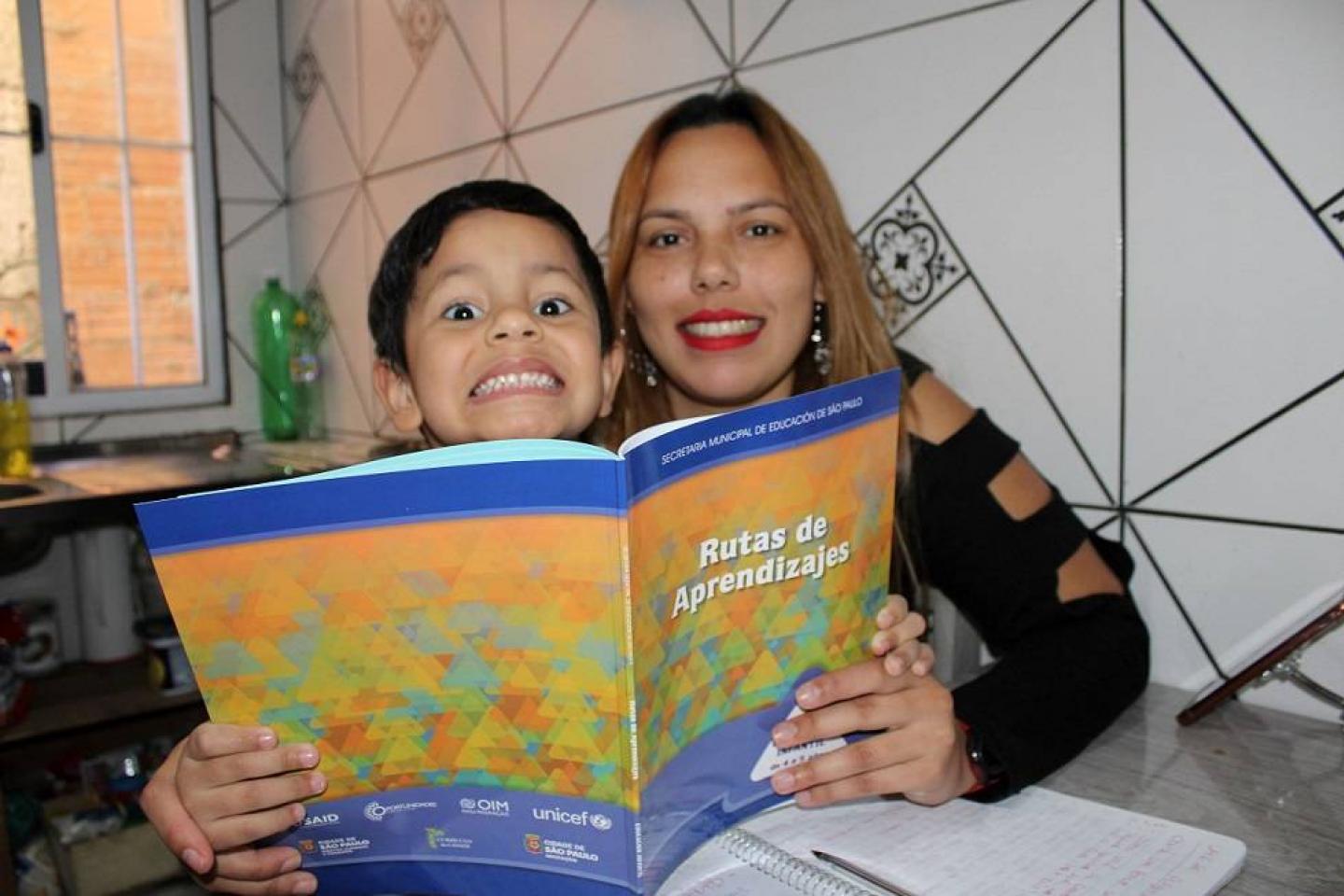IOM, UNICEF, and São Paulo City Hall Facilitate Distance Learning for Refugee and Migrant Children in Brazil

OIM BrasilSee original
São Paulo – Almost four thousand refugee and migrant children up to 8 years old and enrolled in the Municipal Education System of São Paulo have begun receiving the educational materials, “Learning Paths,” in several languages. The objective is to ensure greater inclusion of this population that lacks Portuguese fluency. “Learning Paths” will support them during the period of remote education, due to the closure of the schools caused by the COVID-19 pandemic. Most of the refugee and migrant children who are beneficiaries of this initiative arrived from Bolivia, Venezuela or Haiti. After mapping and identifying the presence of migrants, the Municipal Education Secretariat (SME) of São Paulo identified languages for translation. “In times of social isolation, the Racial Ethnic Education Center (NEER in Portuguese) understands equity as a basic principle and seeks to meet the educational needs of girls and boys enrolled in the Municipal Education System. Everyone has rights. Translating ‘Learning Paths’ provides access,” explained Jussara Santos, the coordinator of NEER. The material translated into English, French and Spanish, (from the official content already available in Portuguese) will support the task of family members in the learning routine and will promote a more sustainable integration of this population. Printing and distribution are being carried out with the support of the International Organization for Migration (IOM) and the United Nations Children's Fund (UNICEF). "IOM is committed to ensuring that migrants and refugees in Brazil have access to education, facilitating their sustainable economic integration in the future, reaching every boy and girl, leaving no children behind," said the IOM Brazil Chief of Mission, Stéphane Rostiaux. “It is essential to reinforce efforts to ensure that refugee and migrant children and adolescents maintain their link with the school and continue to learn during this pandemic. It is also essential to build strategies for these students to return to schools as soon as they reopen,” explained UNICEF’s Representative in Brazil, Florence Bauer. For Edith Q., 34, a Venezuelan woman who arrived in Brazil about a year ago and now lives in São Paulo, this material will facilitate the family's daily life during this period of social isolation. Her 4-year-old son, Dylan, is enrolled in the municipal preschool program. "I am very happy with the possibility of supporting my son while learning at home. It has been difficult, but the material in Spanish facilitates my understanding of the topics and I can help him studying and answering his questions," Edith explained. “It is very important for our integration in Brazil. I really appreciate the work and attention that IOM, UNICEF, and the Brazilian government are giving." São Paulo is the Brazilian municipality with the highest number of registered migrants and refugees, currently accounting for more than 360,000 people, according to data from the Federal Police. It is also the second Brazilian municipality to receive more Venezuelans via the federal government's “interiorization” programme bringing beneficiaries to cities with capacity to accommodate newcomers. So far there have been over 2,400 beneficiaries. IOM support in this activity is carried out within the “Opportunities – Integration in Brazil” project, funded by the United States Agency for International Development (USAID).

